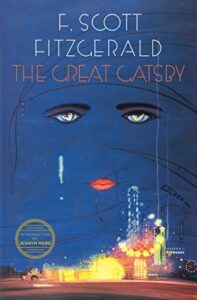Home and Castle received a 4+ star review, making it an IndieReader Approved title.
Following find an interview with author Thomas Benz.
What is the name of the book and when was it published?
Home and Castle, January, 2018
What’s the book’s first line?
“Though he didn’t usually keep count, over the past couple years, Blake was sure he had been mistaken for someone else at least six times.”
What’s the book about? Give us the “pitch.”
Award winning author Jacob Appel describes Home and Castle as “offering a window in the lives of men–middle class, middling and muddling–who find their livelihoods, status and families under threat. With a gift for capturing the subtleties of married life, and pains of lost social standing, Benz carves out a niche as a perceptive heir to the best of John Ohara and John Updike and Paula Fox. This is a major literary debut, one not to be missed.”
Here is a world where misunderstanding among friends, lovers, neighbors, and spouses runs rampant. A man who frequently gets mistaken for someone else decides to impersonate a stranger’s long lost classmate. A commuter falls asleep on the train and with time to kill, wanders into an unfamiliar bookstore where he meets a woman who may or may not be a former lover. An ordinary bureaucrat lucks into a fortune and retires early with unhappy social consequences. A couple escapes to a gated community featuring archeological significance and a new set of friends only to discover that trouble—and proponents of the future―abound everywhere. A wife’s anxious job interview at the company of her dreams becomes a vehicle for reinterpreting love and memory. A divorced father confronts ghosts of his past when he takes his daughter to Disneyland. A jealous husband makes an odd attempt at thwarting the interloper in his marriage. The characters in this volume try to keep their dreams afloat, as they reluctantly contend with the everyday skirmishes of modern life.
What inspired you to write the book? A particular person? An event?
Since it’s a collection of several stories, there is no one source or inspiration. I was an English major at Notre Dame, and naturally I admired a lot of literary fiction and wanted to try my hand. Also, my mother was on the staff of a newspaper advice columnist. When I was seven, she went to the hospital to have a baby and I wrote her a letter that she found amusing, and she somehow managed to get it in the column. That seemed to make an early impression that it was fun to see your own words in print.
What’s the main reason someone should really read this book?
I hate blowing my own horn but this is a book for people who like literary fiction in general and short stories in particular. It’s for those who like a little irony and humor mixed in with the conflict and trouble inherent in any narrative. It’s for those who can get interested in the quirks and conundrums of “ordinary” middle class life.
What’s the most distinctive thing about the main character? Who-real or fictional-would you say the character reminds you of?
Again, as a collection, there are many main characters. Perhaps the most distinctive thing about them is the way they stumble into misunderstandings, and the rather peculiar means they choose to remedy their often desperate situations.
If they made your book into a movie, who would you like to see play the main character(s)?
Someone whose work shows himself to be comfortable with understatement and a certain well meaning haplessness. Maybe someone like Paul Rudd or Owen Wilson.
What’s the best and the hardest part of being an indie?
Being an indie has many challenges, especially concerning the fight for adequate exposure, but it tends to give you more control over your work and the cover of your book which are the absolutely paramount things anyway.
Is there something in particular that motivates you?
Life tends to be messy, fragmented, filled with dull stretches, and often without a perceptible order, at least below the surface. To me, fiction affords the opportunity to concentrate the world into something more vivid, interesting and meaningful.
Which writer, living or dead, do you most admire?
John Cheever has long been my literary guide. I wish he would be more widely read these days because he was certainly one of the best American fiction writers of the second half of the 20th century. He had this marvelous way of intertwining comedy with sadness, not unlike the manner in which they often appear not too far apart in real life. He was a master of tone and also metaphor.
Which book do you wish you could have written?
There are many candidates and this is such a cliché but The Great Gatsby wins out for the timeless beauty of its prose, the compact intricacy of its plot and brilliant evocation of an entire era. Nearly a hundred years after its creation, I still find it irresistible. And obviously, I’m not alone.



